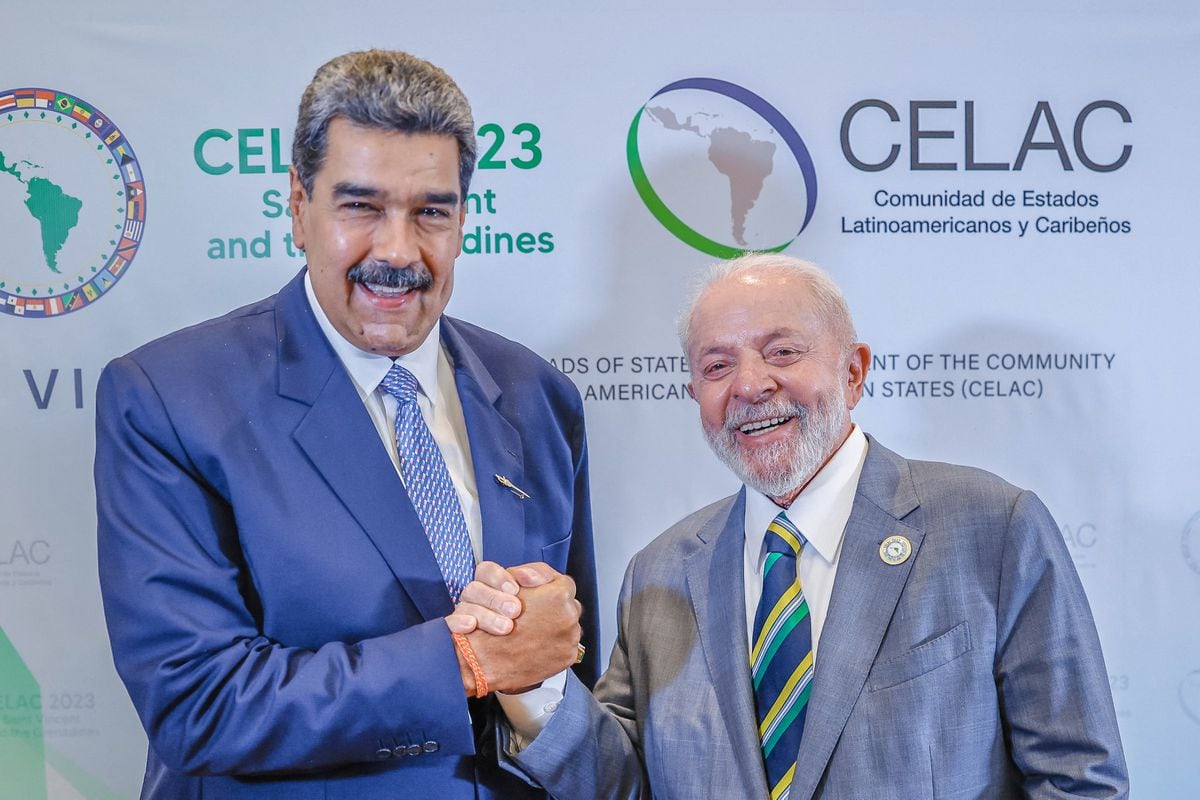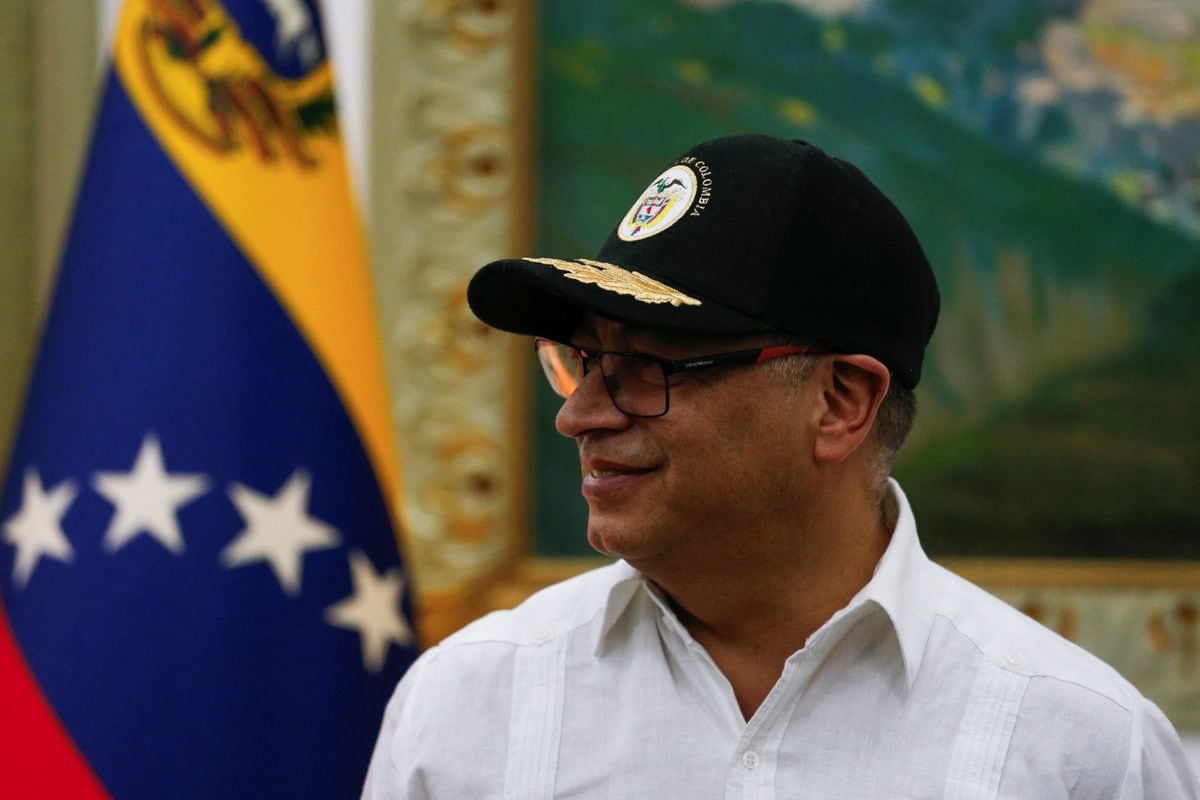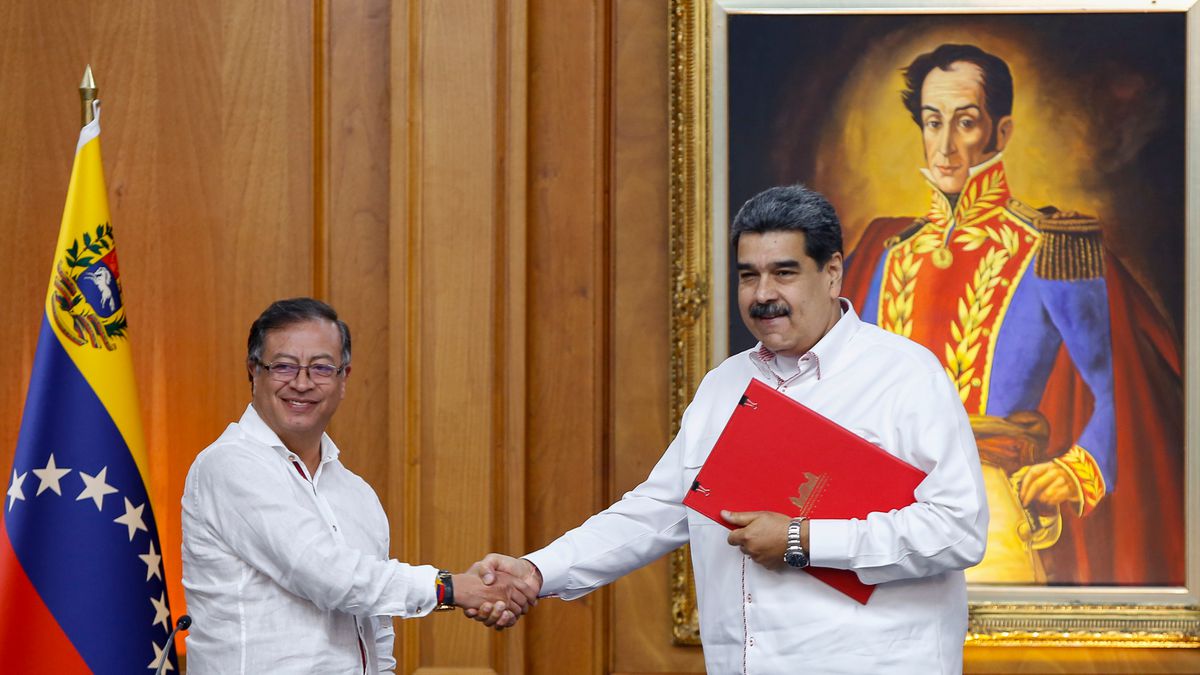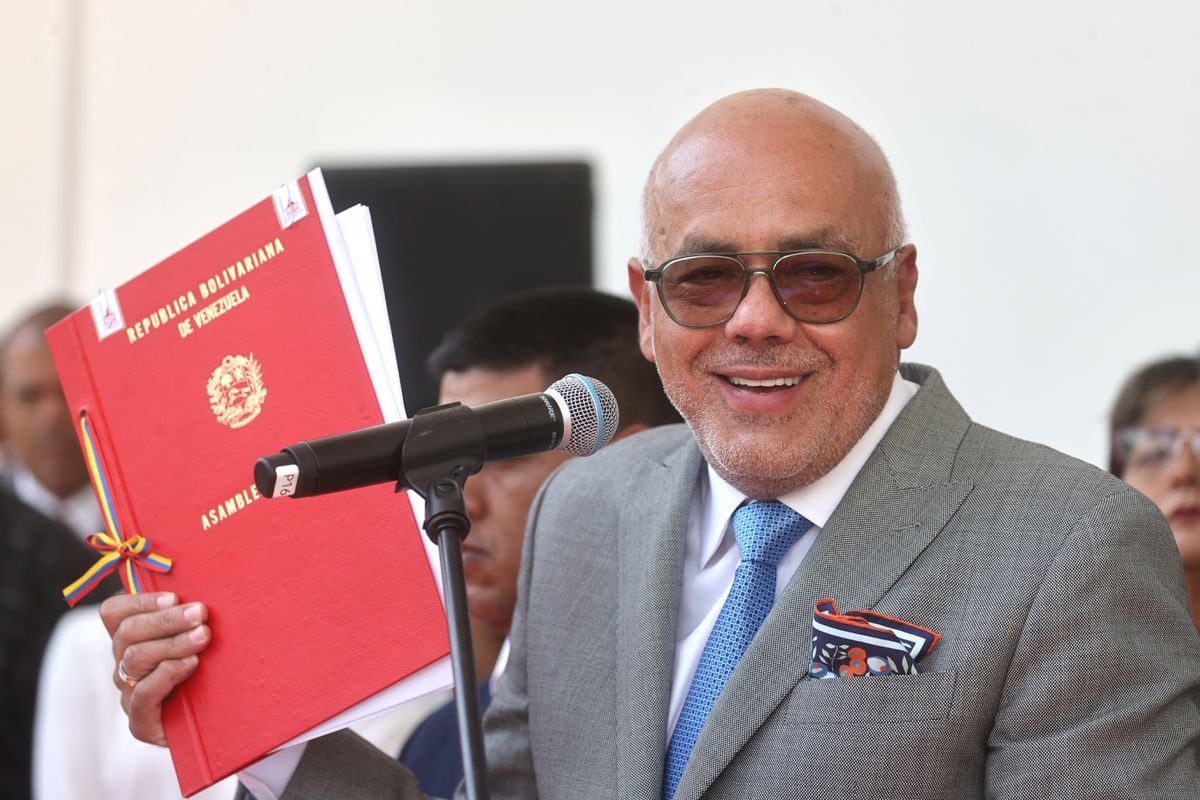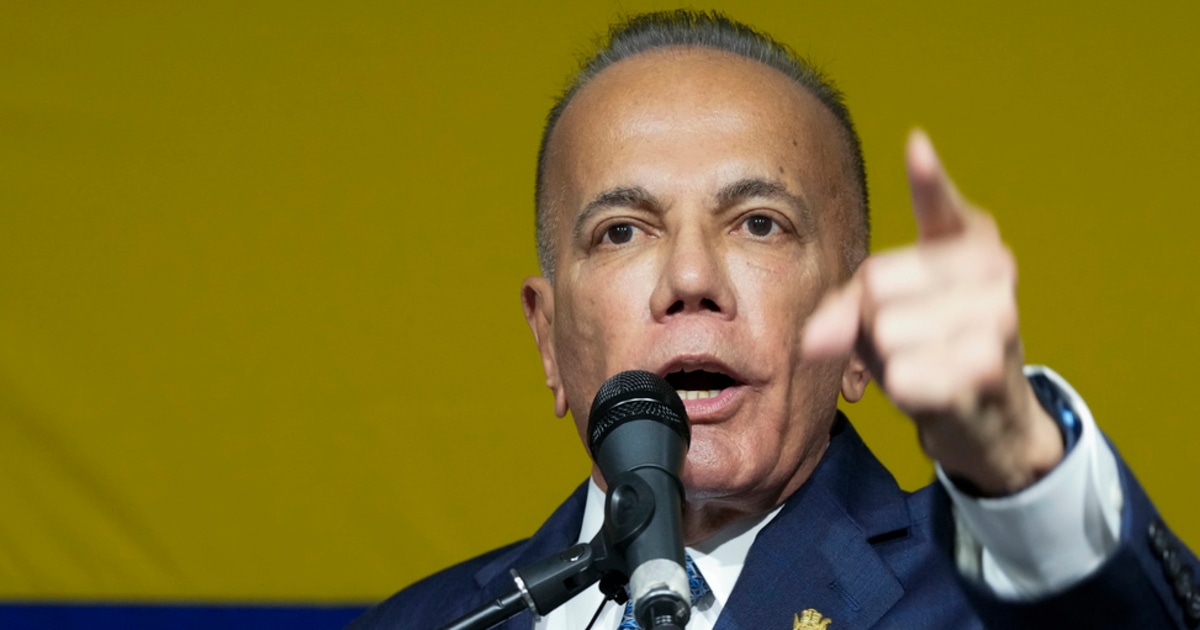President Nicolás Maduro, in his annual report to the nation, in the Assembly, on January 12, 2023.YURI CORTEZ (AFP)
By now, the Government of Venezuela and the opposition should be discussing the date of the 2024 presidential elections and the lifting of the disqualifications of some anti-Chavista politicians.
However, the negotiation between the parties has entered into a deadlock due to the Venezuelan assets abroad that were going to be unfrozen to finance a humanitarian aid fund that was going to be managed by the UN.
The money, for now, has not started to circulate, and President Nicolás Maduro blames the United States for not doing enough to make it so.
"There is a lot of nervousness," they maintain from within the negotiation.
The dialogue has run aground on the most crucial point, the political one.
On November 26, the parties agreed to create the fund with Venezuelan assets held abroad, such as gold kept in the Bank of England or the accounts of the Central Bank of Venezuela in New York.
This capital injection would greatly help the Maduro government, which would have resources to improve the country's situation in the final stretch of elections that should be held in the spring of next year.
The problem is that that money has not yet been released.
Some US officials even warn that creditors will appear when this is executed —Venezuelan debt abroad is very high, even greater than the amount withheld.
The United States Ambassador to Venezuela, Jimmy Story,
The letter has caused an earthquake within the negotiation.
The Chavista leader, according to three different sources, considers that Washington is not fulfilling its promises and that it is not acting vigorously to unlock large sums of money.
Maduro not only believes that he can release the dollars held on US soil, but also other amounts frozen by international sanctions imposed by the White House.
The Government calculates that they are 5,000 million dollars, although the opposition lowers that figure to 3,000.
The situation is so delicate at the moment that Jorge Rodríguez, president of the Venezuelan National Assembly and Maduro's right-hand man, and opposition figure Jorge Blyde will meet in Caracas in the coming days.
The setting seemed ideal.
The United States was about to allow Chevron to export Venezuelan oil and there was a prisoner exchange between the countries.
French President Emmanuel Macron had gotten involved and urged Maduro to organize elections in which the opposition had a real chance of coming to power.
The president of Colombia, Gustavo Petro, the main supporter of Maduro's return to the international scene that is currently in the region, had also pushed in that direction.
Petro has tried to get Venezuela back to Latin American organizations, including human rights, and has insisted that Chavismo must return to what he calls liberal democracy.
All the international leaders had great faith in this new dialogue,
convinced that Chavismo wants to legitimize itself.
However, two months later the negotiation has not advanced and there is a danger that it will drag on forever and will not produce any real results.
This stalemate awakens ghosts of the recent past, since all the attempts at negotiations made in recent years by the Maduro government and the opposition have been a resounding failure for one reason or another.
It happened in the Dominican Republic, in Barbados, in the first round of talks in Mexico and with the rapprochement promoted by the Vatican.
North American sources respond to Maduro's urgencies with skepticism.
“When it comes to the political issue, Chavismo always makes an excuse.
They don't really want to move forward," they explain.
Without an agreement, the situation remains stagnant and with no sign of a solution.
Meanwhile, nervousness dominates the dialogue table.
Follow all the international information on
and
, or in
our weekly newsletter
.
Subscribe to continue reading
Read without limits
Keep reading
I'm already a subscriber


/cloudfront-eu-central-1.images.arcpublishing.com/prisa/BBJE3CUDOBH7REFFA5D6T47C2U.jpg)
/cloudfront-eu-central-1.images.arcpublishing.com/prisa/LAO4YH4MT6P5ML3EI33T7KEJIE.jpg)
